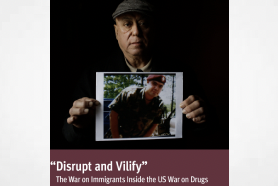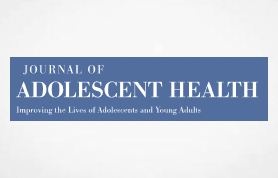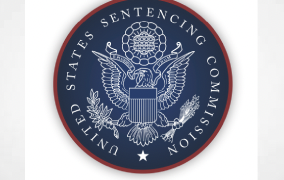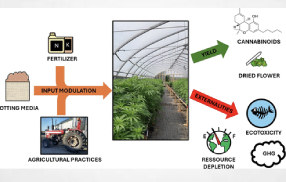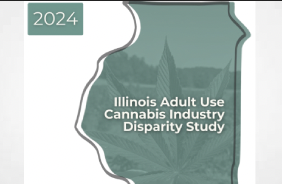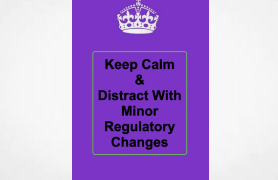Summary
July 15, 2024 News Release
US: Drug-Linked Deportations Soar Despite State Reforms
Nixon … had two enemies: the antiwar left and Black people … We knew we couldn’t make it illegal to be either against the war or Black, but by getting the public to associate the hippies with marijuana and Blacks with heroin, and then criminalizing both heavily, we could disrupt those communities … [V]ilify them night after night on the evening news.
— John Ehrlichman, former White House counsel and assistant to the president for domestic affairs under President Richard Nixon, speaking to journalist Dan Baum about the origins of the “war on drugs,” 1994.
In August 2023, Natalie Burke, a Black immigrant from Jamaica, was pardoned by the governor of Arizona following a unanimous recommendation by the Board of Executive Clemency. It had been 20 years since she was convicted of a set of offenses relating to selling and transporting marijuana. But she cannot move on with her life because US immigration authorities are trying to deport her, even though marijuana is now legal in Arizona and she has a pardon.
Back in 2003, Natalie was trying to escape a severely abusive relationship that had involved her in selling marijuana. She was sentenced in Arizona state court to three years and 120 days of probation.
In an interview for this report, Natalie explained that one day in 2009, her probation officer asked her to come into the Tucson office to fill out some paperwork. Her son, who was in fifth grade at the time, waited for her outside in the parking lot. Natalie never came back to him that day. Immigration and Customs Enforcement (ICE) officers took her directly to an immigration detention center because her conviction made her deportable from the United States.
Initially, Natalie was released from immigration detention on bond pending a direct appeal of her conviction, but ICE rearrested her after the appeal was final and she spent one-and-a-half years in immigration detention.
As soon as Natalie was released the second time from immigration detention, she began pursuing a social work degree. But the constant worry of being taken away took its toll. She told a researcher for this report, “Every time my classroom door would open at Arizona State, I had so much stress. I felt like they were coming to get me all the time.” Still, she earned her bachelor’s, master’s, and doctorate degrees. And she proudly sent her son off to college.
Even with her educational background, Natalie was afraid to start a career on an expired green card and a deportation order. She submitted an application to set aside the judgment in her criminal case and it was granted. But while post-conviction relief restored her rights under state law, she learned that US immigration agencies did not always interpret federal immigration law to recognize such state procedures. Natalie remained at risk. She worked delivery and ride share gigs to try to make ends meet and was denied apartments due to her past convictions. Finally, she applied for a pardon from the governor of Arizona in 2018. And even though Arizona legalized marijuana in 2020, her pardon was denied. In the midst of this stressful situation, Natalie had a stroke, but her immigration status prevented her from obtaining health insurance, so she had none to cover her medical costs.
However, Natalie reapplied for a pardon; and one year later, it was granted by a new governor. It was 20 years since her arrest, and 44 years since she came to the US from Jamaica when she was just 2 years old. “I never thought I would live this life. And it was never explained to me that you’re really not permanent here. That if you commit a crime, that they would get rid of you and discard you ASAP.”
Even with a hard-won gubernatorial pardon, and even in a state where marijuana is now legal, ICE is still trying to deport Natalie. She continues to fight back and is currently pursuing new legal arguments based on the pardon.
Natalie has summoned an uncommon level of resilience, and her story may sound unique. But the features of her case are routine—a longstanding US resident with a drug offense on their record subjected to years of litigation, prolonged detention, and the constant threat of deportation and a bar on ever returning to the US.
***
In 2015, Human Rights Watch published A Price Too High, documenting the unjust provisions of US immigration law that, in effect, doubly penalize immigrants by imposing civil penalties after they have served their sentences for drug convictions by subjecting them to often extended detention and ultimately deportation. Since then, there have been positive strides at the local, state, and even federal levels to reform drug laws to better align with the public’s desire for evidence-based policies grounded in public health. But those reforms have not altered federal immigration law’s draconian approach to drugs. State and federal drug policy is most often overridden by federal immigration law, depriving immigrants of reforms that only benefit citizens. Conviction of even the most minor drug offense—for example, possessing a small amount of a controlled substance, including marijuana, where that is illegal—carries devastating consequences that far outstrip the criminal sentence imposed. Not a single immigration consequence tied to drugs has been curtailed since they were expanded under the administration of US President Ronald Reagan in 1988.
The failure to reform federal immigration law means even more people have been deported. In 2015, we analyzed data from 2002 to 2012 and found 260,000 people deported whose most serious offense was drug-related, with drug use or possession offenses as the most common. This amounted to one of every four deportations of immigrants with a criminal conviction during that time period. In this report, Human Rights Watch and the Drug Policy Alliance analyze 17 years and four months of data (from 2002 to 2020) and find that between 2013 and 2020, an additional 240,000 people have been deported whose most serious offense was for drugs, amounting to about one of every five deportations of immigrants with a criminal conviction for the years 2013-2020. The total amount of people deported whose most serious offense was for drugs between 2002 and 2020 is approximately 500,000.
Drug reform policies are not inclusive and equitable unless they address the harms to immigrants, who remain in the crosshairs of what in many respects has seemed like a war on immigrants within the United States’ so-called “war on drugs.” This ongoing disregard for the human rights and dignity of immigrants forces thousands of people into battles that often never end. This is especially egregious considering the role that global drug prohibition—which the US has aggressively sought to enforce—has played in fueling organized crime and corruption in many Latin American countries, in turn contributing to the violence and social and political problems that often drive migration.
In Natalie’s case, the immigration and criminal systems have so far consumed 20 years of her life; in other cases, immigrants are quickly deported and commence an often futile and dangerous effort to return to the United States. Federal immigration law and punitive drug policies devastate families and communities, do not actually address problematic drug use by citizens or immigrants, subject people to racially discriminatory law enforcement practices, and use an approach to drug policy that is widely unpopular.
us_deportations0724 webDrug Policy Evolves, Immigration Policy Stagnates
Since A Price Too High was published, public consensus that drug policy should be grounded in evidence, health, and equity—not punishment—has grown. A 2021 poll by BPI Media[1] showed that 66 percent of voters in the United States support “eliminating criminal penalties for drug possession and reinvesting drug enforcement resources into treatment and addiction services.” Eighty-three percent of voters say the “war on drugs” has failed. The current contours of the drug overdose crisis have created a different level of urgency for public health interventions to prevent the unnecessary loss of life.
US drug policy has followed suit and started to chip away at the harms of the drug war. Decriminalization and legalization of marijuana is more popular than ever. Today, more than half of US residents live in a state where adult-use recreational marijuana is legal, and 74 percent live in a state where marijuana is legal for adult recreational or medical use.[2] States have implemented public health approaches to drugs, such as community-based distribution of the overdose-reversal drug naloxone, overdose prevention centers,[3] and better access to voluntary treatment services. Despite not being implemented at the scale necessary, these strategies have still prevented overdoses and saved lives.[4]
Unfortunately, the pendulum is swinging back in the direction of criminalization in states like Oregon and cities like Seattle and San Francisco. This reversal can be politically expedient for policymakers who want to appear they are doing something to address crime, public drug use, and unhoused populations. However, a growing body of evidence suggests that an increased emphasis on criminalization drives increases in overdoses and can bar people from accessing housing, substance use disorder treatment, and mental health care, which can exacerbate, instead of reducing, social problems.[5]
At the same time, states have taken action to stem the myriad consequences that flow from past and present drug enforcement by allowing people to expunge, vacate, or apply for clemency for past drug convictions, including for marijuana-related conduct that is no longer illegal. Twelve states have passed “clean slate” laws, which automatically expunge and seal many drug convictions.[6] Unfortunately, most of these laws do not help noncitizens because they are not given effect under federal immigration law.
Progress on the state level has limited impact for immigrants because of the federal government’s plenary authority over immigration law and the US Congress’ failure to enact immigration reform. Stuck in the 1980s, federal immigration law imposes deportation for a wide array of drug offenses after a person has served their time under state or federal law. Often, people are deported for convictions and arrests that date back to the start of the drug war because there is no statute of limitations for initiating deportation proceedings. For example, even in states where marijuana has been legal for years, immigration authorities can order people deported because marijuana is still a controlled substance at the federal level.
The few federal drug reforms introduced to date either do not address the immigration impact of drug convictions or explicitly exclude immigrants. The First Step Act of 2018 allowed people incarcerated under prior sentencing rules to apply for release, but immigration status disqualified many people from its programs. In fact, the non-citizens who successfully fought for release under the First Step Act were not released but immediately placed in deportation proceedings.[7] Furthermore, US President Joe Biden pardoned federal simple marijuana possession convictions, however, the pardon only applies to citizens and certain green card holders, and it might not have immigration effect at all since pardons have been largely ineffective at removing past or future immigration consequences. Similarly, the White House’s Drug Enforcement Administration (DEA) decision in May 2024 to reschedule marijuana from Schedule I to Schedule III of the Controlled Substances Act (CSA) will have no immigration effect. It will maintain the federal marijuana prohibition and keep non-citizens vulnerable to harsh immigration consequences for marijuana activity, including automatic detention and deportation.
Millions of Immigrants Deported or at Risk of Deportation and Other Harms
The failure to enact reforms to federal immigration law informed by new approaches to drug policy affects countless people in the United States. According to US Census data there are at least 21.6 million non-citizens in both authorized and unauthorized status living in the US, accounting for 1 in every 15 people in the country. Nearly half of these non-citizens live in one of the four states featured in this report—California, New York, Illinois, and Texas. For this report, Human Rights Watch and the Drug Policy Alliance analyzed federal data between 2002 and 2020 and found:
- The US government deported a half million people whose most serious criminal conviction was a drug offense, more than 2,400 people per month on average.
- The US government deported at least 156,000 people whose most serious criminal offense was for drug use or possession, including over 47,000 for marijuana use or possession.
- The most common drugs involved were cocaine (40 percent) and marijuana (35 percent).
- Of all immigrants deported with criminal offenses, people with drug-related offenses had lived in the US for the longest periods of time. The mean length of time between entry to the US and deportation was over four years, driven up by deportations of long-term residents. The median length, possibly lower in part due to people who traveled abroad or attempted to re-enter the US after a prior deportation, was one year and four months.
Within these statistics lie human stories. This report offers case studies of people harmed by federal immigration law in California, New York, Illinois, and Texas, including:
- Refugees and US military veterans separated from their homes and families due to deportations for drug offenses;
- Immigrants who have lived in the United States since childhood but have been deported for drug offenses, sometimes for marijuana offenses that today would not even be illegal in their states;
- Immigrant women who were sexually abused by corrections officers during their imprisonment for drug offenses, in part because perpetrators knew they would soon be deported;
- Legal permanent residents who are lawfully employed in a state’s legal marijuana industry but cannot become citizens—on the grounds that their employment shows they lack “good moral character”;
- People who have been detained by immigration authorities after the resolution of their criminal case for a drug offense and deported to danger in their countries of origin; and
- People who live under threat of deportation for drug offenses committed in the 1980s or 90s, before they were married, had children, or became grandparents.
The Way Forward: Rights-Respecting Drug and Immigration Policy
Some policymakers have used the current drug overdose crisis as an excuse to expand the punitive policies of criminalization and prosecution instead of investing in a rights-based public health response. One stark example of rights-abusive policies justified in part as a response to the drug overdose crisis is Operation Lone Star (OLS), a Texas state policy that invests billions of dollars into local law enforcement and military to block and arrest migrants and asylum seekers. High ranking politicians in Texas and beyond have weaponized false and dangerous rhetoric referring to people seeking to migrate across the Texas-Mexico border as an “invasion,” and manufactured fear “that a swell of drug cartel operatives, gang members or rapists are crossing the border into Texas.”[8]
This contemporary narrative could be pulled directly from US President Ronald Reagan’s drug war, which falsely tied increased drug trafficking to anti-immigrant sentiment. In fact, 86 percent of people convicted of trafficking fentanyl into the United States are US citizens driving cars and commercial vehicles through legal ports of entry, not migrants and asylum seekers carrying backpacks.[9] Since 2015, as enforcement has continued to increase, according to the US Centers for Disease Control and Prevention, overdose deaths have more than doubled.[10]
Political leaders from both major parties, including members of Congress and the executive branch, as well as state and local officials, should reject the false conflation of immigrants and drugs. Instead, they should develop more humane policies on two fronts: assisting asylum-seekers and immigrants fleeing danger or seeking to join or return to US family members, homes, and communities in the US; and addressing the domestic drug overdose crisis.
One way to reduce the number of people swept into the criminal legal system or deported for drug law violations is to decriminalize drug use and possession. Decriminalization removes criminal sanctions for certain activities, including possession of drugs for personal use, often without altering the prohibition on a particular substance. Decriminalization of drugs reduces harm to people who use drugs.[11] Studies show no evidence that decriminalization leads to increases in overdose deaths.[12]
The public’s desire to see drug policies that help and do not exacerbate social problems has allowed for some state and federal drug law reforms. Very rarely, such reforms are carefully calibrated to avoid triggering federal immigration law and ensure immigrants can benefit from them. For example, they can allow a person to receive treatment for substance use disorder without requiring them to admit to violating state criminal law—thereby avoiding application of federal immigration law—or impose sentences that do not require deportation, or allow pleas to offenses that do not trigger deportation. But more often state policymakers pay little attention to immigrants, or their efforts are thwarted by federal law that supersedes their attempts at reform. Immigrants remain in the crosshairs of a federal war on immigrants within the “war on drugs.”
There is no need to maintain harsh federal immigration penalties for people whose behaviors are being addressed under state law. Thousands of people, many long-term residents of the United States, and the communities around them continue to be vilified under a cruel, unpopular, and ineffective regime. The impact on individual lives and communities, not the swirling, politicized rhetoric, should be the compass for policy change.
Methodology
For this report, Human Rights Watch and the Drug Policy Alliance consulted with or interviewed 42 immigration and drug policy experts, advocates, attorneys, and immigrants and their family members, including 14 directly impacted immigrants facing consequences under federal immigration law due to drug-related conduct. Interviewees were provided the opportunity to provide information anonymously or using a pseudonym. Interviewees were not compensated for providing information for this report.
The report also contains descriptive statistical analysis of data from several sources. Data on deportations, including the most serious criminal conviction on file, was provided to Human Rights Watch by the Transactional Records Access Clearinghouse (TRAC) at Syracuse University at a time when Human Rights Watch staff acted as a TRAC Fellow of the Center. Additional demographic and criminal legal system data was downloaded from other open data sources, with specific sources cited throughout the report. All analysis code is on file with Human Rights Watch.
To identify directly affected individuals, Human Rights Watch and the Drug Policy Alliance relied on partner organizations, advocates, and attorneys working at the intersection of the criminal legal and immigration systems.
Key Terms and Concepts
Aggravated felony – An aggravated felony under US immigration law is a ground of deportability as well as a bar to almost all forms of relief from deportation such as asylum. The Immigration and Nationality Act (INA) § 101(a)(43)(B) defines a drug-related aggravated felony as “illicit trafficking in a controlled substance, including a drug trafficking crime” (internal citations omitted). Immigration authorities and courts interpret which offenses fit this definition.
Clemency – Pardons are a form of clemency. Clemency is understood as a power of the executive—in the US context, a state governor or the US president—to show leniency or mercy.
Controlled Substances Act – President Richard M. Nixon signed the Controlled Substances Act (CSA) into law in 1970 to regulate drug activity and establish criminal penalties, including mandatory minimums, for illicit activity. The CSA classifies drugs into five “schedules” rated by medical benefits and level of potential for abuse.
Crime involving moral turpitude – A term appearing in the INA. US immigration authorities and courts decide which state and federal crimes fit this definition. Non-citizens convicted of a “crime involving moral turpitude” are deportable depending on the timing of the offense and the length of the sentence imposed by the criminal court. They are prohibited from admission to the United States in the future. Courts have provided a series of vague definitions of the term; one recent example is as a “reprehensible act” with a mental state of recklessness.[13] Drug-related offenses have been categorized as crimes involving moral turpitude.
Decriminalization of drugs – A federal or state process, generally involving changes to legislation and law enforcement practices, ensuring that people are no longer arrested or incarcerated for drug offenses. In the US, decriminalization is most common for offenses of possession of drugs for personal use.
Expungement – The post-conviction process by which a record of criminal conviction is destroyed or sealed from state or federal records. An expungement order directs the court to treat the criminal conviction as if it never occurred, removing it from a defendant’s criminal record and, ideally, the public record. While state governors or the US president may issue pardons, expungements must be ordered by a judge, or court.
Immigration and Nationality Act (INA) – Adopted by the US Congress in 1952, the INA is the main and most important source of US federal immigration law.
International Convention on the Elimination of all forms of Racial Discrimination (ICERD) – An international human rights treaty that entered into force on January 4, 1969. It was ratified by the United States on November 20, 1994, making the US bound by its terms.
International Covenant on Civil and Political Rights (ICCPR) – An international human rights treaty that entered into force on March 23, 1976. It was ratified by the United States on June 8, 1992, making the US bound by its terms.
Judicial discretion – The power provided to judges in certain laws to make certain determinations based on their own assessment. This report discusses judicial discretion to impose a range of criminal sentences or immigration penalties for specific conduct or decline to impose such a sentence or civil penalty; in contrast to instances in which a criminal sentence or deportation is mandatory under law.
Mandatory minimums – Mandatory minimum sentences are legal provisions in each state and the federal government that require a specific minimum sentence for certain crimes, regardless of individual circumstances.
Overdose crisis – A current public health emergency in the United States characterized by waves of increased drug-related overdose. The first wave involved medical prescriptions of opioids, the second heroin, and the third and fourth synthetic opioids like fentanyl and its analogues. This crisis was spurred by increased criminal drug enforcement that led to an increasingly potent supply in the illegal drug market. Today, it highlights the dangers of the unregulated drug supply and systemic issues that exacerbate drug-related harms, including inadequate access to voluntary treatment, harm reduction services, and comprehensive social supports. Addressing it requires the prioritization of public health and evidence-based solutions.
Pardon – A state or federal post-conviction procedure that acknowledges that a crime happened, the growth of the person who committed the offense, and restores legal rights—like the ability to serve on a jury or to obtain a professional license—lost due to the conviction. Pardons are often a necessary, but insufficient, step in the process to obtaining relief from deportation for non-citizens. In general, pardons in the United States are “presidential,” when provided by the US president and “gubernatorial,” when provided by a governor of a state.
Secure communities – State and local jails participating in the “secure communities” program submit the fingerprints of people arrested not only to criminal databases but to immigration databases as well, allowing Immigration and Customs Enforcement (ICE) access to information on individuals held in jails.
287(g) program – Named for Section 287(g) of the Immigration and Nationality Act (INA). Through the 287(g) program, state and local law enforcement officers collaborate with the federal government to enforce federal immigration laws. The 287(g) program has been costly for localities, has historically targeted individuals with little or no criminal history, and has harmed the relationship between police and local communities.
212(c) relief – A discretionary basis for allowing non-citizens to avoid deportation if their criminal convictions occurred prior to 1996 and meet other eligibility criteria.
Universal Declaration of Human Rights (UDHR) – An international human rights agreement, in the form of a UN General Assembly resolution, setting out for the first time fundamental human rights and widely recognized as paving the way for more than seventy international human rights treaties, including the ICCPR and the ICERD.
Vacatur – A post-conviction process by which a conviction is “vacated” or erased—meaning the offense is treated as if it never happened. All records of the conviction are destroyed, and the conviction is removed from a person’s record. It is an extraordinary remedy that is granted by state courts if “in the interests of justice,” which is a high standard. An example of a person who might receive a vacatur under state law is a victim of human trafficking who was forced by their abuser to commit a crime. Vacatur means that there is no basis for deportation under federal law.
War on drugs – Term coined by US President Richard Nixon in the 1970s as part of an effort to impose a set of policies and initiatives to increase drug enforcement and penalties for drug offenses such as use, possession, and sales. The primary focus of the government led strategy was to criminalize and marginalize Black individuals and other communities that the government deemed a threat rather than addressing the root causes of substance use.
Source: https://www.hrw.org/report/2024/07/15/disrupt-and-vilify/war-immigrants-inside-us-war-drugs
